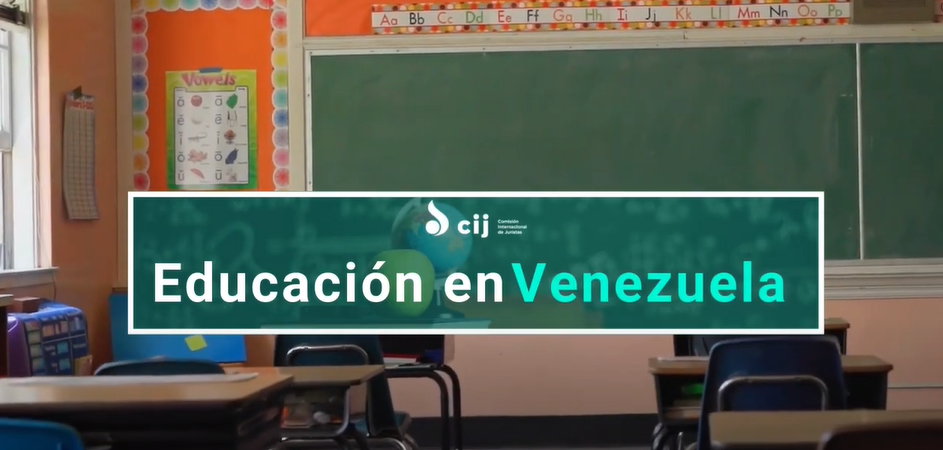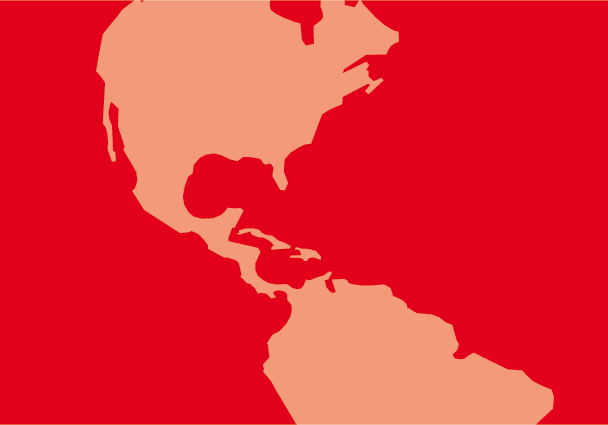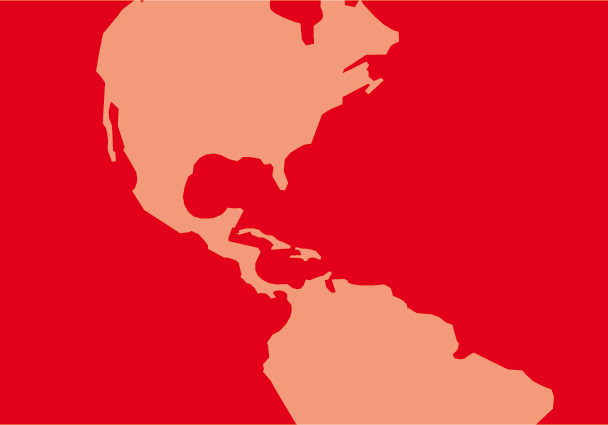


Venezuela: Systematic failure by the Prosecution Office to tackle gross human rights violations brings about near total-impunity
In a report released today, the International Commission of Jurists (ICJ) evaluates the failure of Venezuela’s Public Prosecutor’s Office to address cases involving gross human rights violations amounting crimes under international criminal law. The report concludes...PRESS RELEASE – FACT-FINDING MISSION TO BOLIVIA
Pre-selection process for high judicial authorities and judicial independence March 14, 2024 The International Commission of Jurists (ICJ), the Latin American Federation of Magistrates (FLAM) and the Due Process of Law Foundation (DPLF) led a Fact-Finding...
Guatemala: la transferencia pacífica del poder presidencial debe llevarse a cabo el 14 de enero de conformidad con el Estado de Derecho
La CIJ está preocupada por los intentos de actores poderosos en Guatemala, incluido el Ministerio Público, de subvertir la transferencia de la autoridad presidencial al presidente electo Bernardo Arévalo de León, quien debe asumir el cargo el 14 de enero de 2024.
La CIJ hace un llamamiento a todas las autoridades del Estado y a actores privados para que respeten el Estado de Derecho y desistan de interferir en el proceso de transición y cesen en sus esfuerzos por revocar o hacer ineficaces los resultados de las elecciones presidenciales de 2023.
“El sistema democrático en Guatemala está en juego. Es sorprendente que los ataques contra el proceso electoral provengan de representantes de instituciones del Estado que tienen el deber legal de defender la democracia y los derechos humanos”, afirmó Santiago Canton, Secretario General de la CIJ. “Miembros del Ministerio Público, el Congreso y el poder judicial han actuado en total desprecio de las obligaciones internacionales de Guatemala. En particular, el artículo 1 de la Carta Democrática Interamericana establece el derecho de los pueblos de las Américas a la democracia y el deber de los gobiernos de promover y defender la democracia”, añadió Canton.
El 20 de agosto de 2023, Bernardo Arévalo de León y Karin Herrera Aguilar, del partido “Movimiento Semilla”, fueron elegidos Presidente y Vicepresidenta, respectivamente, para el mandato presidencial 2024-2028. Su victoria fue certificada por el Tribunal Supremo Electoral de Guatemala. Antes y después de las elecciones, hubo múltiples intentos por parte del Ministerio Público y otras autoridades de perturbar el proceso electoral presidencial. El Parlamento Europeo y la Organización de Estados Americanos (OEA) han condenado y calificado algunos de estos hechos como “intentos de golpe de Estado”.
El Ministerio Público, a cargo de María Consuelo Porras Argueta, ha tenido un papel principal en estos intentos mediante el uso arbitrario de sus facultades de persecución penal. Entre otras acciones, el Ministerio Público ha abierto investigaciones penales injustificadas y espurias y ha emitido órdenes de captura y allanamiento contra magistrados y funcionarios del Tribunal Supremo Electoral, el presidente electo Arévalo, la vicepresidenta electa Herrera, miembros del partido “Movimiento Semilla”, miembros de organizaciones de la sociedad civil, académicos y estudiantes.
EL Ministerio Público también ha expresamente puesto en duda la legitimidad del proceso electoral presidencial de 2023. En una conferencia de prensa del 8 de diciembre de 2023, el jefe de la Fiscalía Especial Contra la Impunidad (FECI), José Rafael Curruchiche Cucul, afirmó que el Tribunal Supremo Electoral “se burló de los guatemaltecos” y estaba involucrado en violar la democracia del país. El Fiscal Curruchiche también afirmó que, desde el punto de vista del Ministerio Público, las elecciones de 2023 debían anularse.
Varios jueces han contribuido al uso arbitrario del derecho penal en detrimento del Estado de Derecho en Guatemala. El 8 de enero de 2024, el Juez Séptimo de Primera Instancia Penal, Fredy Raúl Orellana Letona, envió un oficio ante el Tribunal Supremo Electoral para que se ejecutara la orden de suspensión provisional de la personalidad jurídica del partido “Movimiento Semilla”. El Juez Orellana también ha ordenado que se inicie una investigación penal contra funcionarios del Tribunal Supremo Electoral.
En noviembre y diciembre de 2023, el Congreso guatemalteco y la Corte Suprema de Justicia llevaron a cabo el proceso judicial para retirar la inmunidad penal a algunos magistrados del Tribunal Supremo Electoral.
El traspaso legítimo del poder está intrínsecamente ligado al respeto del Estado de Derecho y al ejercicio de los derechos humanos y las libertades fundamentales, incluido el derecho a participar en la vida política y pública mediante el ejercicio del derecho al voto y el derecho a ser elegido. Estos derechos están garantizados por instrumentos internacionales de los que Guatemala es Estado parte, como el Pacto Internacional de Derechos Civiles y Políticos, la Convención Americana sobre Derechos Humanos y la Carta Democrática Interamericana. En consecuencia, la CIJ recuerda que las autoridades guatemaltecas están vinculadas por obligaciones internacionales en virtud de estos instrumentos.
La CIJ también pide a los Estados comprometidos y a la comunidad internacional que actúen para garantizar que las autoridades guatemaltecas respeten el Estado de Derecho, los derechos humanos y el sistema democrático. Si fuera necesario, los Estados miembros de la OEA deberían activar la aplicación del artículo 20 de la Carta Democrática Interamericana, en caso de que se impida que el presidente electo Arévalo asuma el cargo.
Contexto
Las elecciones presidenciales de 2023 tuvieron lugar en un contexto de impunidad generalizada por graves violaciones a los derechos humanos, denuncias confiables de cooptación de órganos judiciales, corrupción institucional generalizada y ataques contra integrantes de organizaciones de la sociedad civil y partidos políticos, según ha sido documentado por múltiples instancias, entre ellas la Comisión Interamericana de Derechos Humanos (CIDH). En el caso de las y los operadores de justicia (juezas, jueces y fiscales), el Alto Comisionado de las Naciones Unidas para los Derechos Humanos ha expresado su preocupación por “el incremento de la criminalización en contra de personas operadoras de justicia” y la “intimidación, el hostigamiento, el procesamiento y la persecución de quienes luchan por la rendición de cuentas por violaciones de derechos humanos y que trabajan en casos de corrupción”.
Ha habido numerosas acciones aparentemente dirigidas a socavar la integridad del proceso electoral presidencial por parte del Ministerio Público. Además de los hechos mencionados anteriormente, el 16 de noviembre de 2023, el Ministerio Público solicitó 31 órdenes allanamiento y 27 órdenes de aprehensión contra activistas, estudiantes, académicos, un miembro del “Movimiento Semilla” y personas defensoras de los derechos humanos. Entre los señalados, se encontraba el abogado de derechos humanos Ramón Cadena, quien había denunciado previamente irregularidades cometidas por el Ministerio Público. Los cargos estaban relacionados con la participación de estas personas en las protestas de 2022 contra la elección del rector de la Universidad de San Carlos. El mismo día, el Ministerio Público también indicó que el presidente electo Arévalo y la vicepresidenta electa Herrera participaron en las protestas “violentas” en busca de ventajas políticas. Por la supuesta participación en las protestas, el Ministerio Público anunció que solicitaría que se retirara la inmunidad al presidente electo Arévalo, a la vicepresidente electa Herrera y a otros miembros de su partido.
El 14 de diciembre de 2023, la Corte de Constitucionalidad resolvió una acción de amparo en la que exhortaba al Congreso a preservar el régimen democrático y a tomar todas las medidas para garantizar la transferencia pacífica del poder el 14 de enero de 2024. Además, la Corte previno a todas las autoridades guatemaltecas a que “actúen de conformidad con sus funciones para la efectividad y debido cumplimiento de la última etapa del proceso electoral.” El 11 de enero de 2024, la Corte de Constitucionalidad concedió un amparo provisional a favor de la vicepresidente electa Herrera. La Corte ordenó a todas las autoridades judiciales abstenerse solicitar y autorizar cualquier orden de aprehensión contra Herrera “sin haberse agotado el procedimiento establecido en la Ley en materia en Antejuicio”.
La situación electoral de 2023 ha sido objeto de grave preocupación de instancias internacionales, entre ellas la Unión Europea y la Organización de Estados Americanos. En esa misma línea, la CIDH otorgó medidas cautelares a favor de Arévalo y Herrera el 24 de agosto de 2023. Las medidas cautelares consideraron las alegaciones de Arévalo sobre amenazas de muerte, hostigamiento, una campaña de desprestigio y vigilancia ilegal en su contra.
El 11 de diciembre de 2023, la CIDH adoptó la “Resolución 03/2023, Derechos Humanos, la Instrumentalización del Sistema de Justicia y los Graves Riesgos para el Estado de Derecho en Guatemala”. La CIDH afirmó que Guatemala atravesaba una “grave crisis política e institucional” debido a “las acciones e injerencias indebidas y arbitrarias por parte del Ministerio Público que atentan contra el resultado de las Elecciones Generales y el proceso de transición de la Presidencia y Vicepresidencia de la República en curso”.

Guatemala: Peaceful transfer of presidential power must proceed on 14 January in accordance with the Rule of Law
The ICJ is concerned about attempts by powerful actors in Guatemala, including the Office of the Attorney General, to subvert the transfer of executive presidential authority to President-elect Bernardo Arévalo de León, who is due take office on 14 January 2024.
The ICJ calls on all State authorities and private parties to respect the Rule of Law and desist from interference in the process of transition and to cease efforts to revoke or make ineffective the results of the 2023 presidential elections.
“The democratic system in Guatemala is at stake. It is shocking that the attempts against the electoral process come from representatives of State institutions that have a legal duty to uphold democracy and human rights,” said Santiago Canton, ICJ Secretary General. “Members of the Office of the Attorney General, Congress, and the judiciary have acted in total disregard of Guatemala’s international obligations. In particular, Article 1 of the Inter-American Democratic Charter establishes the right of the peoples of the Americas to democracy and the duty of governments to promote and defend democracy,” added Canton.
On 20 August 2023, Bernardo Arévalo de León and Karin Herrera Aguilar of the “Movimiento Semilla” party were elected President and Vice-President respectively for the 2024-2028 presidential term. Their victory was certified by the Guatemalan Supreme Electoral Tribunal. Prior to and after the election, there were multiple attempts by the Office of the Attorney General and other authorities to disrupt the presidential election process. The European Parliament and the Organization of American States (OAS) have condemned and characterized certain of these efforts as an “attempted coup d’état”.
The Office of the Attorney General, led by María Consuelo Porras Argueta, has played a leading role in these attempts through the arbitrary use of its prosecutorial powers. Among other actions, the Office of the Attorney General has opened unwarranted and spurious criminal investigations and issued of arrest warrants and search warrants against justices and staff members of the Supreme Electoral Tribunal, President-elect Arévalo, Vice-President-elect Herrera, members of the “Movimiento Semilla” party, members of civil society organizations, academicians, and students.
The Office of the Attorney General has also expressly cast doubt on the legitimacy of the 2023 presidential election process. At a press conference on 8 December 2023 a chief prosecutor, José Rafael Curruchiche Cucul, claimed that the Supreme Electoral Tribunal “made a mockery of Guatemalans” and was involved in “violating the country’s democracy”. He also affirmed that the Attorney General’s Office’s view was that the 2023 elections should be annulled.
A number of judges have contributed to the arbitrary use of the criminal law to the detriment of the rule of law in Guatemala. On 8 January 2024, the Seventh Criminal Court Judge, Fredy Raul Orellana Letona, filed a petition before the Supreme Electoral Tribunal to execute an order for the provisional suspension of the legal personality of the “Movimiento Semilla” party. Orellana has also demanded a criminal investigation against staff members of the Supreme Electoral Tribunal.
In November and December 2023, the Guatemalan Congress and the Supreme Court of Justice engaged in legal proceedings aimed at waiving immunity from criminal prosecution of some justices of the Supreme Electoral Tribunal.
The lawful transfer of power is intrinsically linked to the respect for the rule of law and the exercise of human rights and fundamental freedoms, including the right to participate in political and public life, including through voting and standing for elections. These rights are guaranteed by international instruments to which Guatemala is a State party, such as the International Covenant on Civil and Political Rights, the American Convention on Human Rights, and the Inter-American Democratic Charter. Consequently, the ICJ recalls that the Guatemalan authorities are bound by international obligations under these instruments.
The ICJ also calls on engaged States and the international community to act to ensure that the Guatemalan authorities uphold of the rule of law, human rights, and the democratic system. If necessary, Member States of the OAS should trigger the application of Article 20 of the Inter-American Democratic Charter in the event that President-elect Arévalo is obstructed from assuming office.
Background information
The 2023 presidential election took place in a context of widespread impunity for serious human rights violations over the course of decades, reliable allegations of co-option of judicial bodies, widespread institutional corruption, and attacks against members of civil society organizations and political parties, as documented by multiple instances, including the Inter-American Commission on Human Rights (IACHR). In the case of justice officials (judges and prosecutors), the UN High Commissioner for Human Rights has expressed his concern about “the growing number of criminal cases brought against justice officials” and the “intimidation, harassment, prosecution and persecution of those fighting for accountability for human rights violations, including work on corruption cases”.
There have been numerous actions apparently aimed at undermining the integrity of the presidential election process by the Attorney General and prosecutorial authorities. In addition to the incidents mentioned above, on 16 November 2023, the Office of the Attorney General issued 31 search warrants and 27 arrest warrants against activists, students, academics, a member of the Semilla Movement, and human rights defenders. Among those targeted was the human rights lawyer Ramón Cadena, who had previously denounced irregularities committed by the Office of the Attorney General. The charges were related to their participation in the 2022 protests against the election of the rector of the San Carlos University. On the same day, the Attorney General’s Office also alleged that President-elect Arévalo and Vice-president elect Herrera were involved in the “violent” protests seeking political advantage. For the purported participation in the protests, the Attorney General’s Office announced that it would request that President-elect Arévalo, Vice-President elect Herrera, and other members of their party be stripped of their immunity from prosecution.
On 14 December 2023, the Constitutional Court handed down an amparo action in which it exhorted Congress to preserve the democratic regime and to take all measures to ensure the peaceful transfer of power on 14 January 2024. In addition, the Court enjoined all Guatemalan authorities to “act in accordance with their functions for the effectiveness and proper completion of the final stage of the electoral process”. On 11 January 2024, the Constitutional Court also granted a “protection order” in favour of the Vice-President-elect Herrera. The Court ordered all judicial authorities not to issue or grant any arrest warrant against Herrera without waiving immunity from prosecution.
The 2023 electoral situation has been the subject of grave concern of international instances, including the European Union and the Organization of American States. In this connection, the IACHR granted precautionary measures in favour of Arévalo and Herrera on 24 August 2023. The precautionary measures considered Arévalo’s allegations of death threats, harassment, a smear campaign, and illegal surveillance.
On 11 December 2023, the IACHR adopted “Resolution 03/2023, Instrumentalization of the Justice System and Serious Risks for the Rule of Law in Guatemala”. The IACHR stated that Guatemala was experiencing a “serious political and institutional crisis” due to “the unwarranted and arbitrary actions and interference of the Attorney General’s Office, which are endangering the results of this year’s General Election”.




